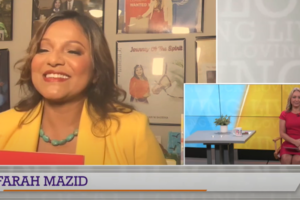Italy ordered a virtual lockdown across much of its wealthy north, including the financial capital Milan, in a drastic new attempt to try to contain an outbreak of coronavirus that saw the number of deaths leap again sharply on Sunday.
The unprecedented restrictions, which aim to limit gatherings and curb movement, will impact some 16 million people and stay in force until April 3. They were signed into law overnight by Prime Minister Giuseppe Conte.
The new measures say people should not enter or leave Lombardy, Italy’s richest region, as well as 14 provinces in four other regions, including the cities of Venice, Modena, Parma, Piacenza, Reggio Emilia and Rimini.
Only people with proven, work-related reasons, or health problems will be able to move in and out of the exclusion zones. Leave has been cancelled for health workers.
“We are facing a national emergency. We chose from the beginning to take the line of truth and transparency and now we’re moving with lucidity and courage, with firmness and determination,” said Conte.
“We have to limit the spread of the virus and prevent our hospitals from being overwhelmed,” he told a news conference called in the early hours of Sunday.
Italy has been hit harder by the crisis than anywhere else in Europe so far and Sunday’s latest figures showed that starkly.
The number of coronavirus cases jumped 25% in a 24-hour period to 7,375, while deaths climbed 57% to 366 deaths. It was the largest daily increase for both readings since the contagion came to light on Feb 21.
Antonio Pesenti, head of the Lombardy regional crisis response unit, told the Corriere della Sera newspaper the health system in Lombardy was “a step away from collapse” as intensive care facilities came under growing strain from the new cases.
“We’re now being forced to set up intensive care treatment in corridors, in operating theatres, in recovery rooms. We’ve emptied entire hospital sections to make space for seriously sick people,” he said.
The Milan stock exchange, whose all-share index has plunged 17% since the crisis broke, was scheduled to open normally on Monday but one trader said he expected “a violent sell-off” as markets digested the lockdown of Italy’s economic heartland.
The World Health Organization said it fully supported the actions taken by Italy, which were in line with its guidelines for containing the spread of the virus.
But with the Italian economy already on the edge of recession, some local politicians pushed back against the measures, which leaked out before the regions were consulted.
The head of Veneto, Luca Zaia, complained he had not been properly consulted and was unhappy that three provinces in his region, including Venice, had been included in the clampdown.
“We do not understand the rationale of a measure that appears scientifically disproportionate to the epidemiological trend,” he wrote on Facebook.





















